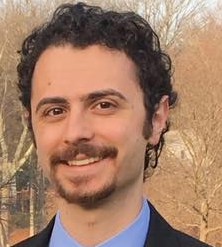While a great deal of concern has been focused on the novel coronavirus’ proven threats to physical health, there is another acute, if not immediately recognized, health crisis looming with equally tragic consequences.
“The major issue of any pandemic is fear of loss,” explained Rev. Dr. Vahan Kouyoumdjian during a recent interview with the Armenian Weekly. That fear, as the pastor of the Armenian Church of the Holy Resurrection in Conn. explained, can be paralyzing in the long-term. The emotional distress caused by the pandemic and lockdowns is real and exacting a great toll.
Professor Nevair Oranjian, an adjunct lecturer in the Department of Secondary Education and Youth Services at Queens College-CUNY explained how the prolonged isolation caused by the lockdowns can be detrimental to mental health. This can stem from the stress of not having a job or steady income and being confined to one’s home for long periods of time. According to The Washington Post, text messages to the federal government’s disaster distress hotline increased by more than 1,000 percent in April. “People with mental health issues may also revert back to unhealthy coping mechanisms,” worried Oranjian, who explained that increased substance abuse and unhealthy habits like binge eating could become commonplace. In fact, mental health experts are working to address concerns about a rise in suicides due to the pandemic, since there has historically been an increase during times of extreme economic decline and social disconnection.
Of particular concern to mental health experts are the unique challenges this crisis can pose to children. During a webinar on mental health hosted by the Armenian General Benevolent Union (AGBU) on Friday, Dr. Louis Najarian recommended that children should maintain a daily structured schedule and should be encouraged to ask questions about what is going on right now. Adults should be prepared to offer age-appropriate answers. “Children are geared to talk,” explained Dr. Najarian. “I can’t stress enough to parents to listen to their children.” Dr. Najarian also offered a stress regulation activity for children. He said parents can invite their children to make a list under “So much is different right now. What is still the same?” This is designed to encourage children to hold onto the things in their life that are still consistent amidst all the uncertainty.
The effects of the pandemic and imposed lockdowns not only give mental health professionals cause for concern about their patients, but also directly impact their work, making what can already be a difficult job more challenging. Lena Minassian, a direct support professional who works with individuals with developmental disabilities, has been facing unique challenges in her job due to the pandemic. Particularly challenging has been her patients’ limited understanding of the restrictions and realities associated with the pandemic. “These individuals rely very heavily on the staff that come to support them daily,” explained Minassian. “It continues to remain our job to fully support each individual not only with daily care but with positivity to ensure their homes are safe.”
A current focus for mental health experts is providing recommendations for different ways to cope with the increased stress and instability that people may experience during this crisis. An important step in this process is understanding just what you need so you can respond appropriately. Dalita Getzoyan, MA, MT-BC, LPMT, and a music therapist for Continuum Care Hospice of RI explained that the physical distancing required to help mitigate the spread of the coronavirus is leading to feelings of isolation for many people, and each person will have their own way of trying to maintain a connection to others.
For some people, physical touch is important, while others may simply enjoy communicating verbally. Still others may find comfort in doing things for friends or helping them with their needs. Getzoyan suggested, “If you are someone who benefits from physical touch, consider ways that you can provide physical comforts to yourself while you are unable to receive this from others. If you enjoy verbal connection or spending time together, reach out to people you love and tell them how much you appreciate them, maybe over an extended video chat.”
Rev. Dr. Kouyoumdjian also offered helpful recommendations for coping, particularly ones that include life’s simple pleasures such as listening to music, going for a jog or reading. “Ultimately, for me as a Christian, faith in God is my way of coping,” he added.
As America slowly begins to recover from the coronavirus-related healthcare surges and months- long lockdown policies, a serious mental health pandemic awaits on the horizon. Fortunately, it seems that those who work in the field of mental health will be uniquely equipped and prepared to help patients manage this scary situation.



Be the first to comment